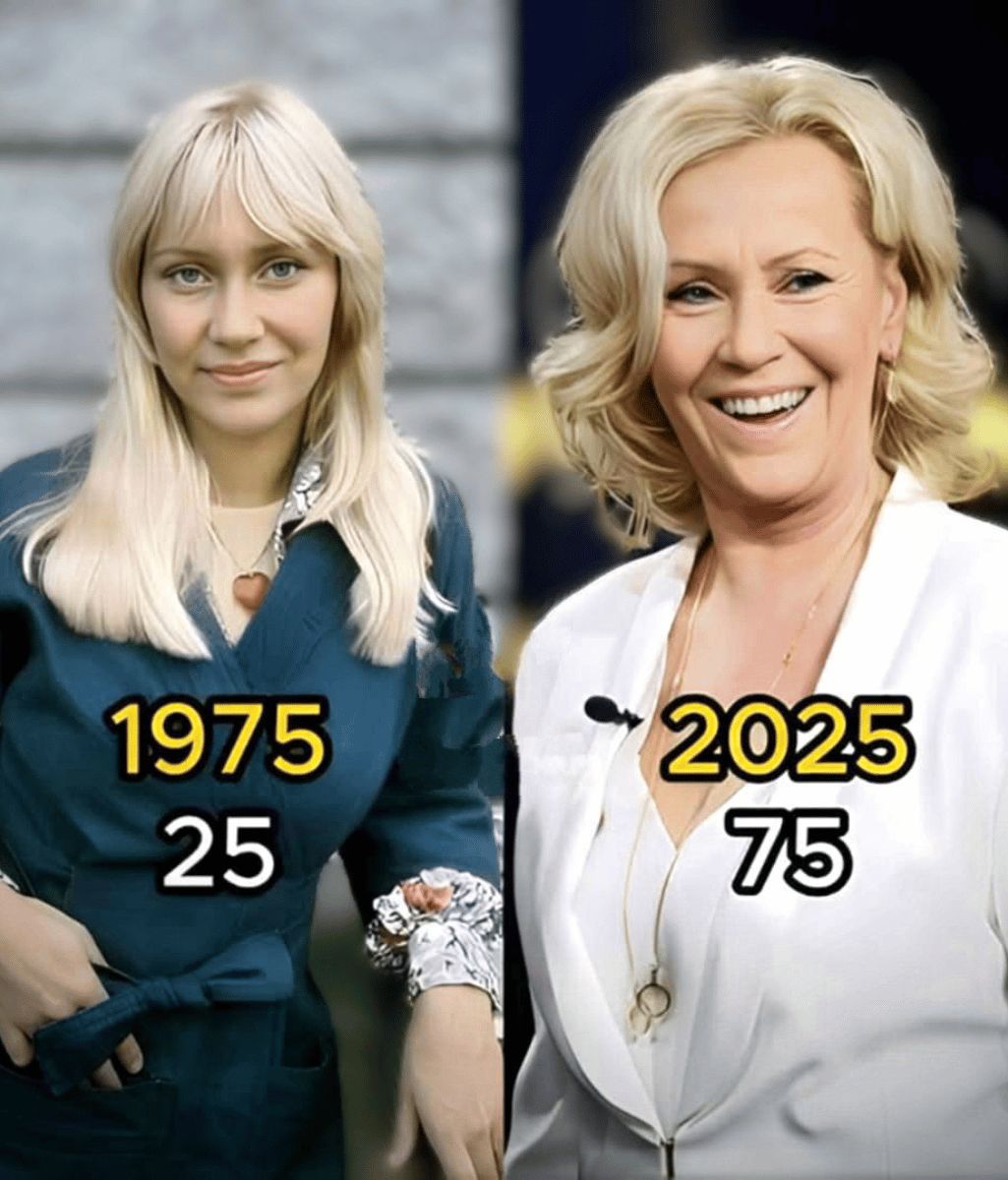
There are moments in time when music stops being just sound and becomes something eternal — something that captures an entire generation’s heart. For millions around the world, that moment arrived in 1975, when a young Swedish woman stepped onto the world stage with a voice that shimmered like light over water. She was Agnetha Fältskog, just 25 years old, one-fourth of ABBA, and the voice behind songs that would never grow old.
Back then, she was radiant in her simplicity — long blond hair, gentle eyes, and a voice that seemed both fragile and powerful at once. When she sang “SOS” or “The Winner Takes It All,” she didn’t just perform; she felt. Every note carried a story — of love found and lost, of longing wrapped in melody, of the bittersweet beauty that only honesty can give. People across continents didn’t need to understand Swedish or English to feel what she was singing; the emotion transcended language.
ABBA became the sound of the 1970s — joyful, colorful, endlessly human. While the world danced to “Dancing Queen” and “Mamma Mia,” Agnetha quietly became the soul of the group. Her voice could soar over orchestras and still sound intimate, as if she were singing only to you. And behind that golden tone was a woman with a poet’s heart — introspective, shy, yet unflinchingly true in her art.
Then, as the years passed and ABBA stepped away from the spotlight, Agnetha chose a quieter life. She raised her children, released solo records, and allowed herself the peace that fame rarely permits. But even in silence, her music kept living. Every time a record spun, every time a melody floated from a car radio, her voice was there — untouched by time, forever young.
Now, in 2025, she is 75. The world has changed, but when she smiles, it feels like 1975 all over again. The same warmth, the same kindness, the same light. Her laughter carries the wisdom of years, but her eyes still hold that unmistakable sparkle — the look of someone who has loved deeply, lived fully, and given the world more beauty than she ever intended to.
💬 “I never thought of myself as a star,” she once said. “I just loved to sing — and somehow, people listened.” That humility has always been her quiet superpower. It’s what made the world trust her voice — a voice that could break hearts with a whisper and heal them in the same breath.
Today, when young artists cite ABBA as inspiration, they are really talking about what she and her bandmates stood for: melody with meaning, emotion without ego, and joy without irony. Her songs have outlived trends, generations, and even languages. They remind us that real artistry doesn’t fade — it deepens.
1975: A star was born. 2025: the legend still smiles. Half a century later, her music continues to play — not just through speakers, but in the hearts of those who grew up believing that happiness could sound like a song.
And every time we hear that familiar voice drift through the years, we are reminded that time moves on, but true grace — like true music — never ages.
Video here:





